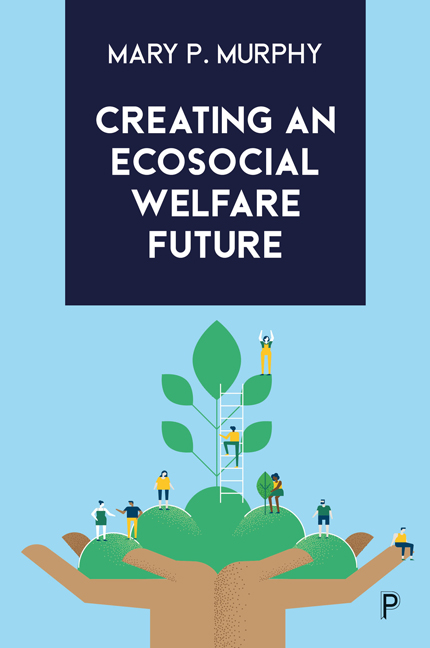Book contents
- Frontmatter
- Dedication
- Contents
- List of figures and tables
- Acknowledgements
- Introduction: The case for a welfare imagination
- PART I From problems to solutions: a post-growth ecosocial political economy
- PART II Building an ecosocial imaginary
- PART III An ecosocial political imaginary
- Conclusion: The case for systemic transformation
- Appendix: Ireland
- Notes
- References
- Index
PART I - From problems to solutions: a post-growth ecosocial political economy
Published online by Cambridge University Press: 20 January 2024
- Frontmatter
- Dedication
- Contents
- List of figures and tables
- Acknowledgements
- Introduction: The case for a welfare imagination
- PART I From problems to solutions: a post-growth ecosocial political economy
- PART II Building an ecosocial imaginary
- PART III An ecosocial political imaginary
- Conclusion: The case for systemic transformation
- Appendix: Ireland
- Notes
- References
- Index
Summary
While this is largely a book about how welfare and social policy needs to change, the starting point is defining the problem: how the political economy of 21st-century capitalism impacts so negatively on both environmental sustainability and societal inequality. Inspired by Polanyi (1944), a fruitful way of understanding social policy is as a reaction and a decommodifying response to capitalism and its unrelenting commodification of labour, land and money (Gough et al, 2008, p 327; Kirby, 2021). A call for decommodification underpins the analysis throughout this book.
Contemporary political economy models and the related worlds of welfare capitalism are deficient, failing to secure gender and other equalities, socioeconomic justice, health and wellbeing, social reproduction, democratic participation as well as sustainable ecologies. The case for transformation is altogether stronger from these multiple perspectives and demands a comprehensive political response. The case for an ecosocial solution is manifold, and true from the obvious perspective of climate change, as well as the wider perspective of system change.
The analysis rejects green-growth solutions that are overly productivist or techno-optimist in nature. This is consistent with a post-growth transformation to an ecosocial model that demotes economic growth as a policy objective, instead maximising human wellbeing, meeting basic needs and protecting our common eco-system. Each chapter concludes by exploring the chapter topic in the anchoring case study of Ireland.
- Type
- Chapter
- Information
- Creating an Ecosocial Welfare Future , pp. 11 - 12Publisher: Bristol University PressPrint publication year: 2023



